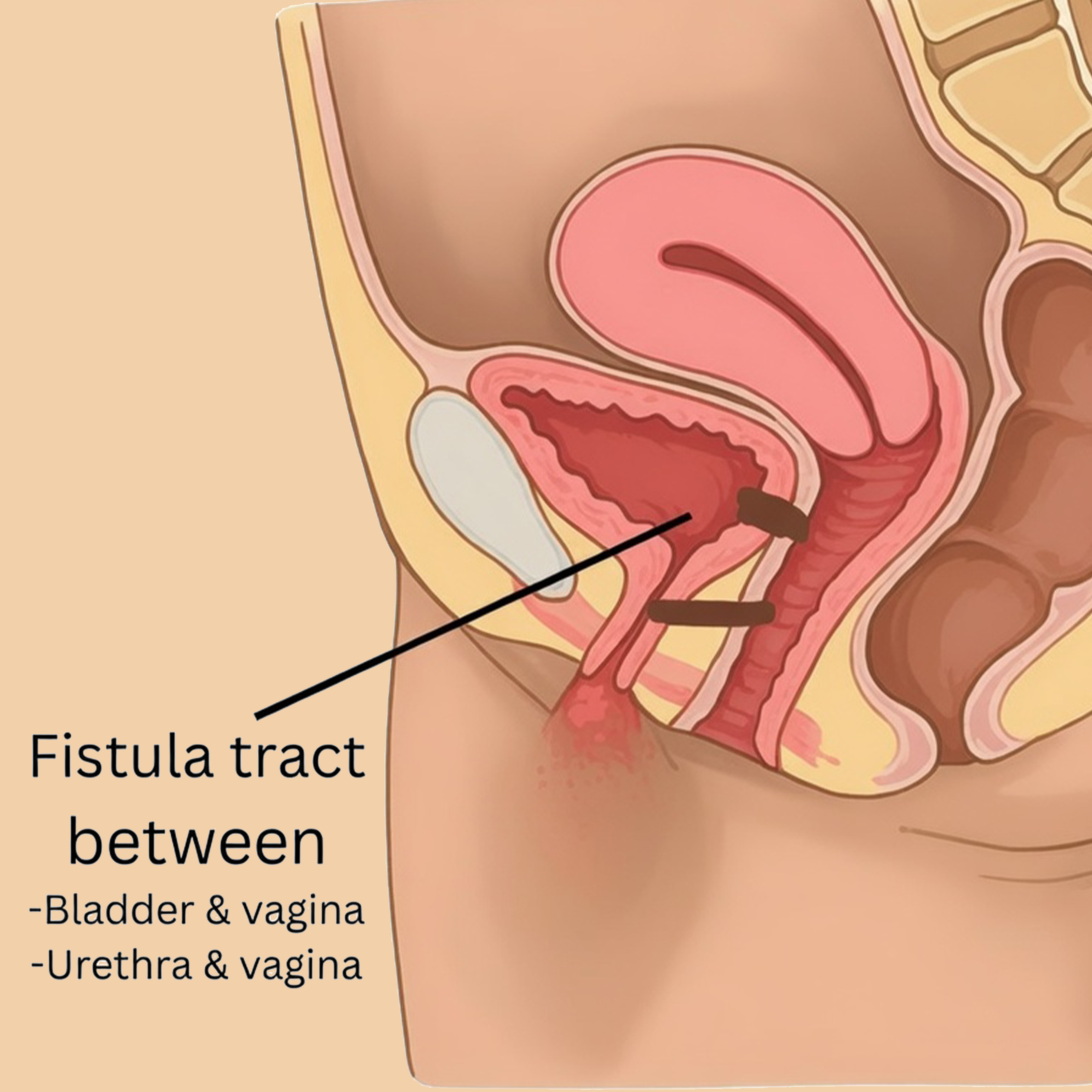Vesico Vaginal Fistula
Vesico-Vaginal Fistula Treatment in Nagpur
A vesicovaginal fistula (VVF) is an abnormal opening between the bladder and the vaginal wall. It can cause continuous urine leakage, odor, and discomfort.

info@urogynelegance.com
+91 84462-86033
A vesicovaginal fistula (VVF) is an abnormal opening between the bladder and the vaginal wall. It can cause continuous urine leakage, odor, and discomfort.
